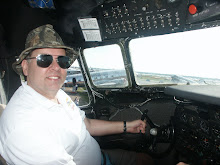Managed to work quite a few, some with great ease. Some of it has to do with favorable propagation during the week they were on, but most has to do with the quality of the operators and their scheduling.
Others, I struggled to work at all, and in some cases barely made contacts on some bands. If this is the kind of operation you prefer, here's my list of tips on how to best optimize that outcome:
- Don't operate on the WARC bands. If you're not familiar with them, they are 30, 17 and 12m. These aren't terribly popular, since they have only been ham bands for a couple of decades now. I'm sure some folks don't even have equipment for these bands. Best to stick with the harmonically related bands of 40, 20, 15 and 10m, although I'm not to sure about 15m....
- Don't operate on 160 or 80m, even when it is dark. Rates will certainly be better on 40 or 20m, right. Few hams have the real estate for the enormous antennas required to operate these bands. Best to stay on the higher bands even after the sun goes down -- until the bands close, at least.
- Don't operate exotic modes, like RTTY. Not many hams will have that fancy RTTY equipment. So, you're sure to work many more stations using good old-fashioned CW or SSB. If you must work a digital mode, make sure it is one of the new-fangled ones, like PSK 63 or JT 65.
- Don't operate split. Takes up too much bandwidth. We hams can't figure out how to set up our rigs for split anyway. Who cares if the rate really stinks, since everyone is calling on top of you. That will make getting the QSO all that much more challenging, right?
- Don't operate between midnight and 7 AM. We hams certainly need our beauty sleep. They'll be no one to work anyway, right? Everyone should be asleep. And there's no need to start operating early in the morning, especially before sunrise. No one is awake then anyway, right?
- Don't operate more than one band at a time. Hams will get too confuse if you appear on more than one band at a time. Besides, there's probably only one band that's really open, so there's little need to move around.
OK, OK, I kid. I know, these operations are run by volunteers, and not everyone is an expert operator. It just amazes me at how poorly scheduled a few of these operations were. It was especially frustrating wanting to work these operation on the low bands, and staying up late, or getting up early, only to find they were QRT.
I've slowly been increasing my LoTW totals for WAS from Floyd County.

No comments:
Post a Comment